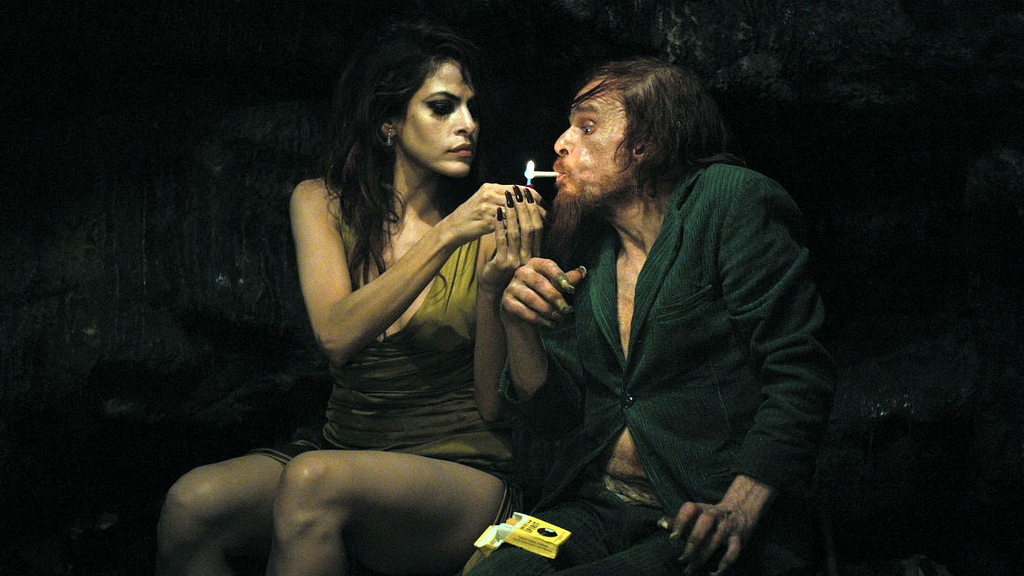|
The Breadcrumbs widget will appear here on the published site.
Monsieur OscarWhat does it really mean to be an actor? Is it the ability to complete cloak yourself behind the veil of another individual? Does it mean suppressing your own individuality? When do you stop being one person and become another? These questions all appear in Holy Motors, a 2012 film directed by French director Leos Carax. Carax's previous film effort was Pola X in 1999, and Holy Motors became a film that conveyed a lot of ideas he had for films in the thirteen year directorial gap. What it results in is a film that is completely surreal and imaginary to the point that everything on film becomes questionable by nature. Holy Motors follows an actor named Oscar (Denis Lavant) as he is driven all around Paris in a limo driven by Céline (Edith Scob). The film is entirely set in a single day, as Oscar goes from one “appointment” to another. These appointments run from being nonsensical to insane. In each appointment, Oscar becomes a new character, acting out a scene or series of scenes with no clear goal for anything he does. Over the film, he plays a variety of characters, from an old man on his deathbed to a beggar woman to a gangster to a sewer troll. Holy Motors never provides a definite answer for why anything in the film happens. There are enough contextual clues to give at least a simple idea for what it is about. There is a company that hires actors and sends them around Paris to fulfill various roles that the people of Paris need for them to do or simply hire them to do. When Oscar acts as a father picking his daughter up from a party, we never really know if he's the girl's father or someone who was hired to be her father for that scenario. We don't even know who benefits from these appointments. There's talk of cameras being hidden or people who pay attention to the work Oscar does, but there's never anything outright confirmed. In fact, Holy Motors, which is the name on the building where Céline parks the limo at the end of the film, might not even be the company name. If there is so much uncertainty in this film, the viewer has to question is anything is even legitimate. The structure of the film is simple: Céline drives Oscar somewhere, he exits in costume, “performs,” then returns to the limo to go to the next appointment. This should give an idea of when he is acting and when he isn't. But does Oscar ever really stop acting? Céline may be a rock to ground in reality, but it's never even given if she's not an actress or not. She does play a part in a few of the scenes, mostly running out of the limo to bring Oscar back to it, but some of these appointments depend of her getting out of the limo. Even at the end, Céline puts on a mask when leaving Holy Motors, which suggests that even she has to put on a role when working as a limo driver. At the same time, the entire city of Paris is likely a false construct. In one appointment, Oscar is acting as a man on a deathbed, saying his final words to his grieving niece. It's revealed at the end of the scene that the niece was also an actress who had the scene as an appointment. The very next scene, Oscar runs into another actress named Jean (Kylie Minogue). The two of them have a moment together that suggests they're off duty and speaking as real people. However, Jean bursts into a musical number, and in the end fulfills an appointment that horrifies Oscar. It's revealed that the entire chance encounter was just an appointment. Because of this, the viewer has to wonder if everyone is in on the joke or not. This is fascinating because it makes the viewer question how much of their own lives are real or not. This isn't a Truman Show-esque fit of paranoia, but it asks the viewer to examine what is truth and isn't. Are we often putting on acts when we meet other people? Are the events in our lives things that are spontaneous or are they constructs? Most importantly, do we have an identity that we can separate from our outer appearance? These questions aren't easy to answer, but Holy Motors looks to explore and deconstruct all these thoughts. Carax has had plenty of time to think about film and acting in the gap between films, and he has plenty of interesting ways to explore them. Holy Motors is really unlike any movie that has come before or after it. It blends several genres together to create a film that never lets the viewer feel settled. There's no safe moment in the film to relax and take in what is happening; the entire scene can change without warning. Despite this, Holy Motors really is an experience. There's really no way to predict what can happen in this film, but the way everything happens makes sense for what is going on. The film is a collection of scenes and clips that could fit into a dozen other movies, but by placing them all together in a film with a small frame connecting them causes the film to transcend conventional film storytelling and become probably one of the best surrealist films ever. #Film #FilmReview #HolyMotors #AlexCarrigan #LeosCarax #FrenchFilm
CommentsComments are closed.
|
|








